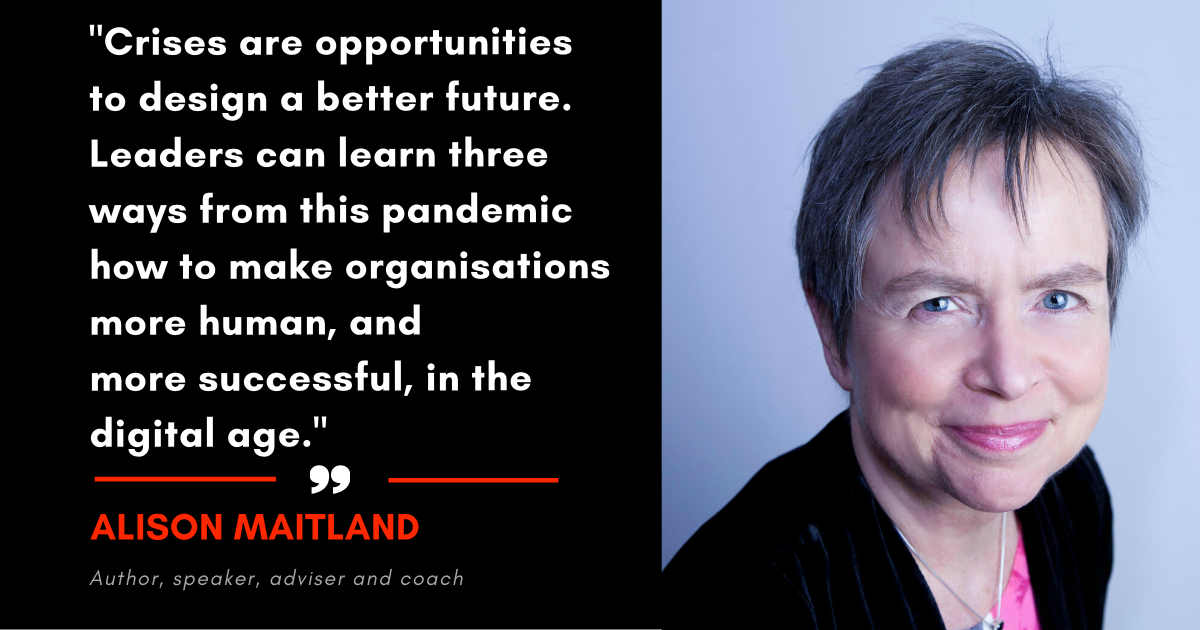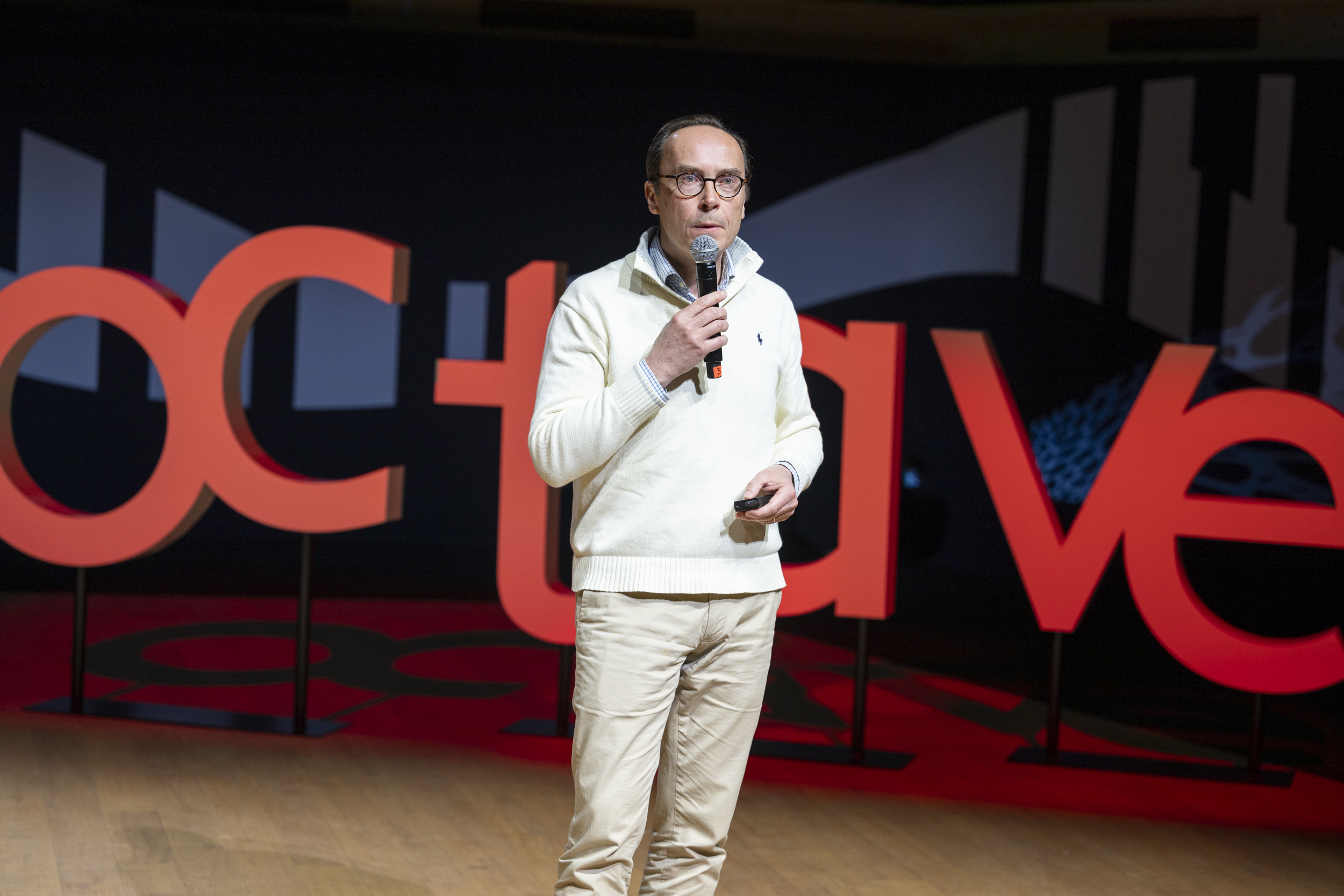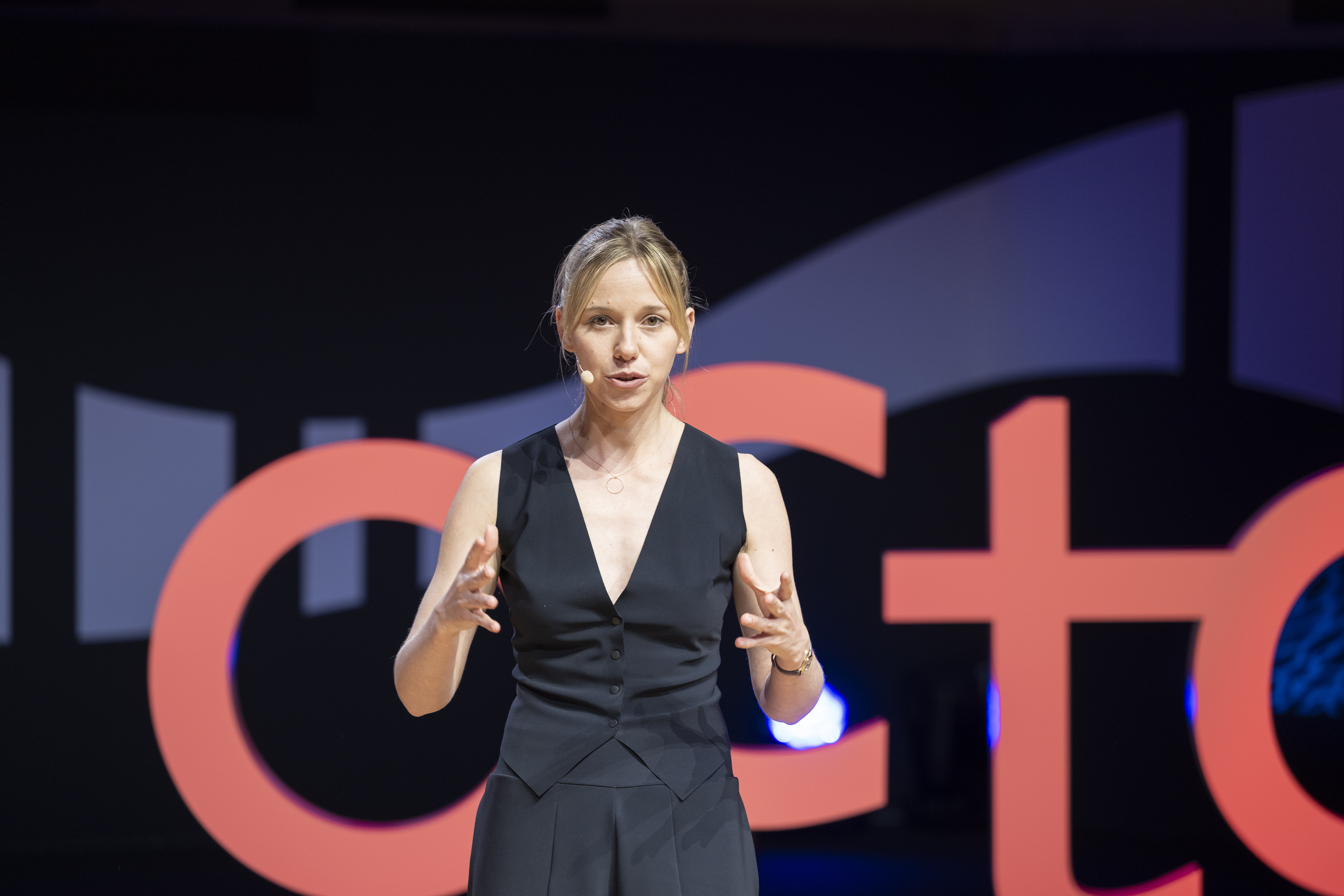Three pandemic lessons to make organisations more human
Three pandemic lessons to make organisations more human
By Alison Maitland for the Octave webmagazine
The Covid-19 crisis has turned our world upside down. We can no longer rely on things we took for granted. We are being forced to adjust fast and use all our creativity and resourcefulness.
Crises are also opportunities to design a better future. Here are three ways that leaders can learn from this pandemic how to make organisations more human, and more successful, in the digital age.
- Prioritise inclusive leadership skills
Even before Covid-19, strong interpersonal skills were growing in importance. They are needed to address global challenges collectively, manage an increasingly fluid workforce, and differentiate our uniquely human capabilities from the smart machines alongside which we work.
These skills have become more relevant than ever for leaders suddenly faced with a virtual workforce, based at home under mass self-isolation.
In our new book INdivisible: Radically rethinking inclusion for sustainable business results, my co-author Rebekah Steele and I set out the significance of these higher-level human qualities – qualities such as openness, respect, adaptability, appreciative listening, empowering others, inviting dissenting opinions, and co-creating solutions. We show how investing in inclusive skills drives team and business performance, prepares organisations to meet challenges, and demonstrates a purpose beyond profit.
Being inclusive is not easy. It requires intention and effort. Now is a perfect time to practise and enhance these skills, whether your teams are dispersed, co-located or a likely combination in the future.
Are you inviting everyone in your virtual meetings to contribute in turn? Are you giving space to colleagues coping with multiple family demands, grief, or anxiety? Have you thoughtfully avoided telling jokes and anecdotes that are specific to one culture only? Have you adapted your style of support to the fact that some people enjoy quiet virtual working while others feel isolated and out of touch?
Tapping into our lived experiences builds connection and collaboration towards a shared purpose. You can set the tone and encourage others to speak openly by describing how the crisis is affecting you personally and what mechanisms you are using to cope.
Notice the impact of these behaviours on team cohesion, performance and creativity. How will you weave these behaviours into your everyday interactions to build and sustain a high performing organisation after Covid-19?
- Pay attention to vital ‘on demand’ workers
The crisis has given prominence to the role of key workers in supporting our collective wellbeing and ensuring essential services. They include health workers and care givers, food retail staff, delivery drivers and refuse collectors. While many of us can work virtually, these jobs require physical presence and put them in the way of danger. Many are low paid and precarious, and often carried out by marginalised immigrant or ethnic minority workers.
Organisations, too, depend on a flexible infrastructure of ‘on demand’ workers to provide the services and solutions they need, such as virtual assistants, drivers, cleaners and couriers. As leaders, what are you doing to include these critical workers in the same way as you include your employees? Are you paying them promptly? Inviting their input and ideas? Extending your staff benefits to them?
By acknowledging their value, instead of taking them for granted, you can build and deepen trust, loyalty and responsiveness. What will you do differently for this wider workforce from now on?
- Adopt a whole-system approach
We show in INdivisible why a comprehensive strategy is needed to address exclusion and to build more human work environments. Many companies try to measure their inclusiveness by asking employees a few survey questions about whether they feel they belong, are respected and heard. They seek to implement inclusion by focusing on individual leadership actions.
Feelings and actions are important, but not enough. What are also needed are structures, processes and signals that facilitate inclusiveness throughout the organisation.
There is a vivid parallel in the Covid-19 crisis. We know that many people have the virus even though they feel well, so we cannot rely on feelings alone to tackle the pandemic. Individually we must all take action, washing our hands, staying home and practising physical distancing.
But those individual actions are also not enough.
A whole-system strategy is also required to coordinate healthcare systems to handle the influx of patients, businesses to ensure employees can work virtually, and governments to work collaboratively to enforce stay-at-home guidelines and intervene to keep economies afloat.
What structures does your organisation have to ensure that no one is left out during this crisis? Does everyone have the same technological support to participate in virtual meetings? Is there a process to rotate meetings around time zones so that no colleagues routinely have to join outside their normal working hours? Now is the time to review your formal structures. What do you need to put in place to ensure that everyone is included in the future?
 Alison Maitland is an author, speaker, adviser and coach. Her specialist areas are leadership, inclusion and diversity, and the changing world of work. A former Financial Times journalist, she is co-author of three books: INdivisible, Future Work and Why Women Mean Business. Alison is a Senior Visiting Fellow at London’s Cass Business School and Chair of the Executive Board of the Cass Global Women’s Leadership Programme. She is a Senior Fellow in Human Capital with The Conference Board, and is a leadership coach and member of the International Coach Federation.
Alison Maitland is an author, speaker, adviser and coach. Her specialist areas are leadership, inclusion and diversity, and the changing world of work. A former Financial Times journalist, she is co-author of three books: INdivisible, Future Work and Why Women Mean Business. Alison is a Senior Visiting Fellow at London’s Cass Business School and Chair of the Executive Board of the Cass Global Women’s Leadership Programme. She is a Senior Fellow in Human Capital with The Conference Board, and is a leadership coach and member of the International Coach Federation.
INdivisible: Radically rethinking inclusion for sustainable business results, by Alison Maitland and Rebekah Steele, is available from Amazon and major booksellers: https://indivisible-book.com
Share this Post








